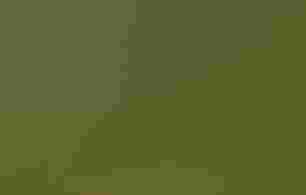
Better fisheries management is needed to improve the health of Ospreys in Chesapeake Bay.
From overfishing of prey, to climate change, and pollution, seabirds are threatened at every part of their life cycle. That's why Audubon is working to reverse the seabird crisis by focusing on sustainable fisheries management, marine protected areas, and our Seabird Institute.
We are working to establish marine protected areas at key locations throughout the Western Hemisphere, including in the U.S., Bahamas, and Chile. Marine protected areas are key to providing habitats for seabirds, fish, and other marine life that benefit coastal communities and economies. For example, the new Northeast Canyons and Seamounts Marine National Monument, which Audubon and others helped establish through advocacy and education encompasses crucial wintering grounds for Atlantic Puffins that nest in Maine. Its designation as a national monument limits fishing, drilling, and mining within this nearly 5,000-square-mile region. In addition, in the Bahamas, our scientific data was factored into the establishment of the 92,000-acre Joulter Cays Marine Protected Area, which is the wintering home for thousands of shorebirds, including 10% of the Atlantic population of Piping Plovers. Such protections uphold rich habitats that grow commercial fish populations, while providing a refuge for birds and other wildlife. In coalition with our partners, Audubon will advocate for continued and new protections for these marine protected areas.
Over the last 40 years, Audubon's Seabird Institute (formerly known as Project Puffin) has accumulated significant data on seabirds and their diets, restored seabird nesting colonies in Maine for approximately 42,000 seabirds and exported these techniques to seventeen countries, and inspired hundreds of thousands of people in the U.S. and internationally to support seabird conservation. Audubon’s network of seven actively managed seabird nesting islands and the Hog Island headquarters and educational facility are located in the coastal waters of the Gulf of Maine, one of the fastest-warming regions of the global ocean. This network serves as a living laboratory to study and teach about climate change impacts on seabirds and the fish and marine ecosystems on which they depend.
Let us send you the latest in bird and conservation news.
